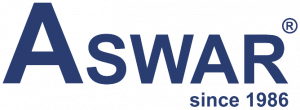Summery:
The Construction Manager will be responsible for overseeing all aspects of the construction process, from planning and budgeting to execution and project completion. This role requires strong leadership skills, technical expertise, and a proven track record of successfully managing construction projects from conception to delivery.
Job Duties:
Project Planning and Scheduling:
• Develop comprehensive project plans, including timelines, milestones, and deliverables.
• Create detailed schedules for construction activities, ensuring alignment with project goals and deadlines.
• Coordinate with architects, engineers, and other stakeholders to establish project requirements and objectives.
Budget Management:
• Prepare project budgets, estimates, and cost analyses based on project scope and requirements.
• Monitor project expenditures and financial performance to ensure adherence to budgetary constraints.
• Identify cost-saving opportunities and strategies to optimize project profitability.
Resource Allocation and Management:
• Allocate resources effectively, including labor, materials, equipment, and subcontractors.
• Procure materials and equipment in a timely and cost-effective manner, while maintaining quality standards.
• Coordinate with vendors, suppliers, and subcontractors to ensure timely delivery of materials and services.
Quality Control and Assurance:
• Implement quality control measures to ensure that construction activities meet industry standards and specifications.
• Conduct regular inspections and quality audits to identify defects, deficiencies, and deviations from project requirements.
• Develop and enforce quality assurance protocols to maintain the highest level of craftsmanship and workmanship.
Safety Compliance:
• Enforce safety protocols, guidelines, and regulations to maintain a safe working environment for all project personnel.
• Conduct safety training and awareness programs to promote adherence to safety procedures and best practices.
• Investigate accidents, incidents, and near misses, and implement corrective actions to prevent recurrence.
Contract Management:
• Review and negotiate contracts with vendors, subcontractors, and suppliers, ensuring favorable terms and conditions.
• Administer contracts and agreements, including scope of work, payment terms, and project deliverables.
• Monitor contractor performance and compliance with contractual obligations.
Stakeholder Communication:
• Serve as the primary point of contact for project stakeholders, including clients, architects, engineers, and regulatory agencies.
• Provide regular updates, progress reports, and status presentations to stakeholders, addressing concerns and inquiries.
• Facilitate effective communication channels and collaboration among project team members and external partners.
Risk Management:
• Identify, assess, and mitigate potential risks and hazards associated with construction activities.
• Develop risk mitigation strategies and contingency plans to minimize project disruptions and liabilities.
• Monitor project risks and issues, and implement proactive measures to address them in a timely manner.
Team Leadership and Management:
• Lead and motivate project teams, including construction supervisors, foremen, and laborers, to achieve project objectives.
• Provide guidance, mentor-ship, and training to team members, fostering a culture of excellence and continuous improvement.
• Resolve conflicts, disputes, and issues among team members, promoting a positive and collaborative work environment.
Documentation and Reporting:
• Maintain accurate and up-to-date project documentation, including contracts, permits, drawings, and change orders.
• Generate progress reports, construction logs, and as-built documentation to track project milestones and accomplishments.
• Prepare and submit regulatory filings, permit applications, and compliance reports as required by governing authorities.



















